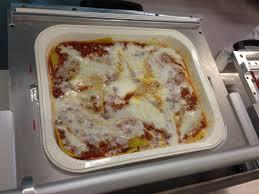Inquire
Frozen Ready Meals Market Sustainability Practices and Eco-Friendly Initiatives Impacting Growth

Frozen Ready Meals Market is embracing sustainability through eco-friendly packaging, responsible sourcing, and energy-efficient production. Consumers increasingly prefer products that minimize environmental impact, driving companies to adopt green practices. Sustainable initiatives include recyclable materials, reduced plastic use, and low-carbon logistics. Companies investing in environmental responsibility enhance brand reputation, attract conscious consumers, and comply with regulatory standards. Incorporating sustainability into operations not only supports ecological goals but also fosters long-term growth, competitive differentiation, and customer loyalty in the global frozen ready meals industry.
Eco-Friendly Packaging
Packaging innovations reduce environmental impact while maintaining product quality. Recyclable, biodegradable, and minimal-waste packaging solutions appeal to environmentally conscious consumers. Brands adopting sustainable materials also comply with regulations and reduce overall carbon footprint. Effective packaging strategies combine convenience with eco-responsibility, supporting market competitiveness.
Responsible Sourcing of Ingredients
Sustainable sourcing practices ensure ethical, high-quality ingredients. Companies prioritize local suppliers, certified products, and environmentally friendly farming practices. Responsible sourcing reduces supply chain risks, enhances product traceability, and appeals to consumers valuing ethical consumption.
Energy-Efficient Production Processes
Manufacturers are optimizing production with energy-efficient technologies and reduced resource consumption. Automation, waste minimization, and renewable energy integration lower operational costs and environmental impact. Energy-efficient practices demonstrate corporate responsibility and contribute to sustainable industry growth.
Low-Carbon Logistics and Distribution
Cold chain management and transportation are optimized to minimize carbon emissions. Companies invest in fuel-efficient vehicles, route optimization, and temperature-controlled storage to ensure product integrity while reducing environmental impact. Sustainable logistics enhance operational efficiency and brand credibility.
Marketing Sustainability to Consumers
Communicating eco-friendly initiatives through packaging, digital campaigns, and labeling informs consumers about environmental commitment. Highlighting sustainability practices strengthens brand perception, builds loyalty, and differentiates products in a competitive market.
Challenges and Opportunities
Challenges include higher initial investment, maintaining cost-effectiveness, and sourcing sustainable materials. Opportunities lie in meeting consumer demand for environmentally responsible products, improving brand value, and gaining a competitive edge. Companies integrating sustainability can achieve long-term growth and market differentiation.
Future Outlook
The frozen ready meals market will increasingly focus on sustainability and eco-friendly practices. Companies adopting green packaging, responsible sourcing, and energy-efficient processes will attract conscious consumers, enhance brand loyalty, and drive growth in the global frozen ready meals industry.
- Managerial Effectiveness!
- Future and Predictions
- Motivatinal / Inspiring
- Other
- Entrepreneurship
- Mentoring & Guidance
- Marketing
- Networking
- HR & Recruiting
- Literature
- Shopping
- Career Management & Advancement


 SkillClick
SkillClick